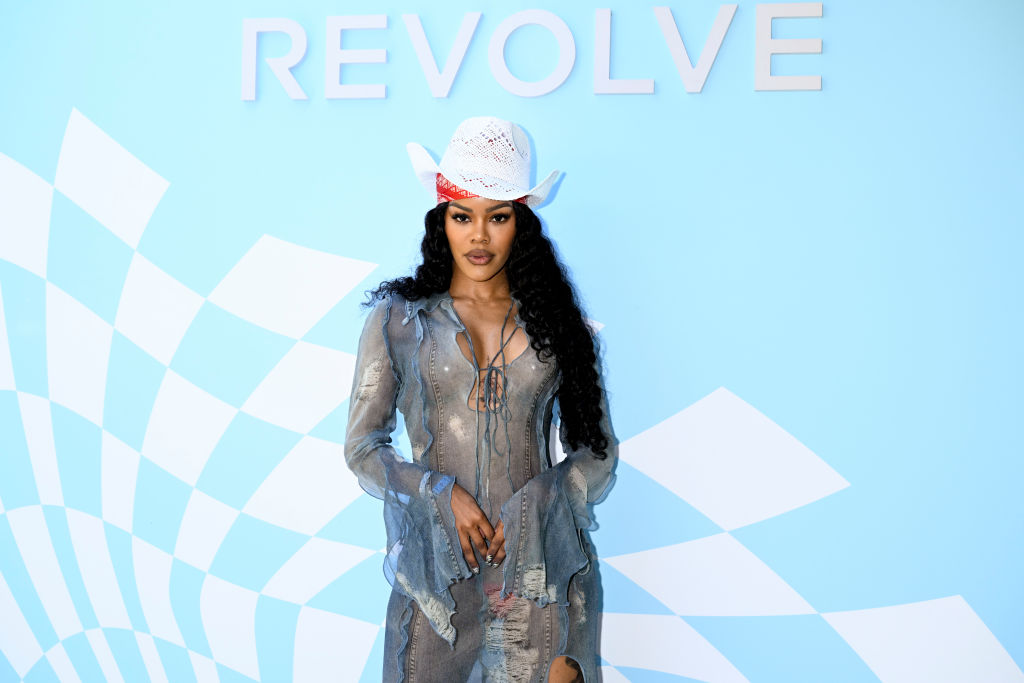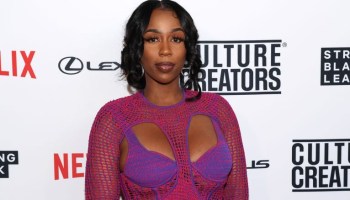On July 8, Manhattan Supreme Court Justice Anil Singh dismissed a major portion of a defamation lawsuit filed by John Wender against a former scorned lover, Louis Silberling. According to the $1.25 million dollar lawsuit, Wender alleged that Silberling posted defamatory material on a blog and via emails in which she purportedly detailed infidelities of Mr. Wender, his alleged deficiencies as an architect, as well as his physical “shortcomings.”
MUST READ: She’s Got Style: 10 Bloggers Whose Closets We’d Love To Raid
The two met through the internet and commenced a relationship in March 2011, having only met up in person three times from then until January 2012. Upon the completion of the relationship, Silberling allegedly “engaged and continues to engage in a malicious campaign to utterly destroy plaintiff’s personal and professional reputation.” The alleged defamatory statements made by Wender, according to a recent Newsweek article, included an inference that Wender had a “tiny, STD – infested wiener” among other statements of opinion.
Silberling has denied authorship of some of the statements, and also believes the ones she did make were “expressions of opinion” which are past the one-year statute of limitations on defamation actions.
WHAT DOES THIS MEAN?
Defamation is a tort committed in one of two ways, either by a written statement (i.e. – libel) or spoken (i.e. – slander). It is not a crime, but may cause civil damages to the person(s) or entities claiming any wrong doing of another party. The purpose of this claim is to prevent people and entities from ruining or attempting to ruin another person’s life by telling and spreading lies and false information about them.
Laws for a claim of defamation of character vary from state to state, yet the basic elements are typically that a plaintiff must prove that a statement: (a) is published, meaning heard or read by a third party; (b) is false; (c) has injured the plaintiff; and (d) is unprivileged, meaning circumstances where freedom of speech is deemed so important that the person speaking should not be hindered by worries that they will be sued for defamation, such as a witness testifying in court.
There are, however, defenses to claims of defamation. These defenses include: (a) truth; (b) the alleged defamatory statement was simply one of opinion; (c) consent of the wronged party to the publication of the alleged defamatory statement; (d) absolute privilege, for judges, government officials, etc. ; (e) qualified privilege; and (d) retraction of the alleged defamatory statement.
Justice Singh had the following to say about many of the exhibits entered to prove defamation: “many are not falsifiable and, hence, qualify as opinion, and many others, although they are vituperative, do not constitute libel per se.”
Other allegations mentioned in the lawsuit that Justice Singh found to be non-actionable included:
- that he “smells foul”
- that he’s “got herpes”
- that his “pubic hair is white like Santa Claus”
- that he “cheated on his wife for 20 years with hundreds of women”
- that he’s a “true misogynist” who “revels in manipulating, torturing and mocking his victims”
- that he’s a “bloated, hairy spider who will suck all the hopefulness and goodness out of you and leave your desiccated carcass dangling from his web”
- that his teeth “resemble an Amish graveyard”
HOW DOES THIS AFFECT YOU?
As mentioned in the New York Law Journal, “defamation cases arising from statements made in cyberspace are increasingly common,” said Shari Claire Lewis, a partner at Rivkin Radler, and Internet and computer law expert who is not involved in the case. “Factors behind the rise include the ‘very freewheeling, very aggressive’ tone of commenters, the lack of editorial filters and the fact that comments that would have been soon forgotten in other mediums were now locatable for years to come.”
When assessing any form of liability, before you think to publish a statement, claim or story about a person or entity, give it plenty of thought. Our constitutional rights protect opinions, in terms of certain claims of defamation, however, other claims involving intentional infliction of emotional distress, as well as unnecessary legal action should be thoroughly considered as well.
Rashida Maples, Esq. is Founder and Managing Partner of J. Maples & Associates (www.jmaplesandassociates.com). She has practiced Entertainment, Real Estate and Small Business Law for 9 years, handling both transactional and litigation matters. Her clients include R&B Artists Bilal and Olivia, NFL Superstar Ray Lewis, Fashion Powerhouse Harlem’s Fashion Row and Hirschfeld Properties, LLC.
RELATED STORIES:
SHE’S THE LAW: U.S. Court Rules Bloggers Get Same Speech Protections As Traditional Press
Prince Files Multimillion-Dollar Lawsuit Against 22 Bloggers & Facebook Users Over Live Bootlegs
SciAm Apologizes To Blogger For Deleting Her Post After Being Called A ‘Whore’
Check Out This Gallery Of Fashion Tips From Our Fave Bloggers!





















